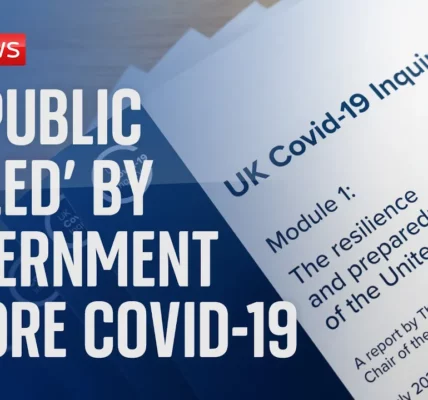Political Landscape Analysis Ahead of the Upcoming Elections

This article provides an in-depth examination of the current political climate in the UK as we approach a significant election. It explores key challenges faced by the Labour Party, the implications of voter behavior, and the potential for change in government policies.
Understanding the Current Political Climate
The political landscape in the UK is characterized by uncertainty, particularly as the upcoming elections approach. With Labour Party leader Keir Starmer at the forefront, there is a palpable sense of anticipation among voters. This election is not just another political event; it represents a potential turning point for the country after 14 years under Conservative governance. The dynamics of this election are complex, involving not just party politics but also the sentiments of the electorate who are eager for change.
The Impact of Nigel Farage and the Reform Party
One significant factor influencing the current political scenario is the role of Nigel Farage and the Reform Party. Many Conservative voters have shifted their allegiance towards Reform, creating a divide that has had profound implications for the Conservatives. This migration of votes raises questions about the legitimacy of any potential Labour government, particularly if they were to achieve a majority under such altered circumstances.
Voter Dynamics and Their Implications
The dynamics of voter behavior are crucial in understanding the potential outcomes of the election. Key points include:
- Voter Migration: A substantial portion of Reform voters are former Conservative supporters, indicating a significant shift in political loyalty.
- Poll Uncertainty: Current polls show varying results, reflecting the unpredictable nature of voter turnout and sentiment.
- Grassroots Sentiment: Many voters express a desire for change, but there remains skepticism regarding the ability of Labour to deliver on their promises.
Challenges Facing a Potential Labour Government
Should Labour emerge victorious, they will face a myriad of challenges that could hinder their ability to implement change effectively. These challenges stem from both financial constraints and public expectations.
The Financial Landscape
Labour’s financial situation is precarious, with leaders like Rachel Reeves emphasizing the need for responsible budgeting. Key financial challenges include:
- Legacy of Conservative Policies: Labour will inherit a weakened economy, affected by years of Conservative governance.
- Public Spending Limits: With limited funds, Labour will need to prioritize its spending decisions carefully.
- Public Expectations: There is pressure on Labour to deliver immediate results, despite financial constraints.
Public Trust and Legitimacy
A potential Labour government could struggle with public trust, particularly regarding its mandate. Historical context reveals that:
- Labour has only achieved a majority from opposition three times in the last century.
- Public perception of the party’s legitimacy may be challenged if they secure a majority with a lower share of the vote.
Labour’s Policy Priorities
Labour’s campaign centers around a vision for growth and addressing key social issues. However, critics argue that the party is not making enough progress on vital matters such as child poverty.
Key Policy Areas
Labour’s manifesto highlights several critical areas of focus, including:
- Economic Growth: Labour aims to rejuvenate the economy, promoting investment and job creation.
- Child Poverty: The party faces scrutiny over its decisions regarding child benefit policies.
- Public Services: Enhancements to the National Health Service (NHS) and education are at the forefront of Labour’s agenda.
Balancing Priorities
Labour must balance its agenda for growth with pressing social issues. For instance:
- Ensuring economic stability to foster public confidence.
- Addressing child poverty through comprehensive policies, not just financial allocations.
- Rebuilding public services to improve overall societal health and well-being.
Conclusion: A Call to Action for Voters
As the election approaches, it is imperative for voters to recognize their power in shaping the future of the UK. The potential for change is tangible, but it hinges on voter turnout and engagement. Labour’s commitment to addressing the challenges ahead is clear, but it requires a mandate from the electorate. Voters are urged to consider the implications of their choices carefully and to embrace the opportunity for meaningful change on election day.
“`




